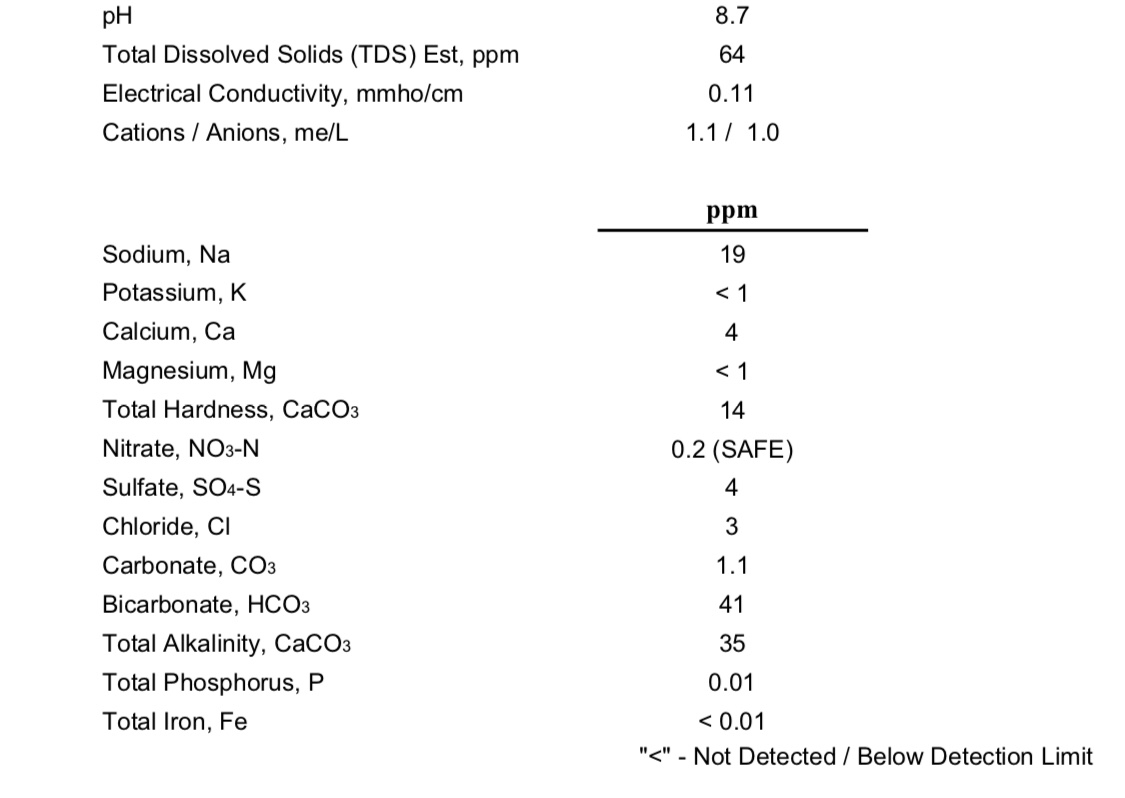- Joined
- Feb 25, 2015
- Messages
- 189
- Reaction score
- 174
Beginner with water understanding here. Ward labs analysis report:

My beer has been tasting different after switching from bottled spring water (hasn’t been for the better). Does anything stand out? I have been using BS to calculate water salt additions and am trying to teach myself Bru’n Water as well. Seems like it is soft water. Would I benefit from installing an RO system and building my profile from there? Or keeping local water and using that to build my profiles? As I understand it, it’s easiest to start with RO water, and many experienced brewers recommend it. Any help is appreciated!

My beer has been tasting different after switching from bottled spring water (hasn’t been for the better). Does anything stand out? I have been using BS to calculate water salt additions and am trying to teach myself Bru’n Water as well. Seems like it is soft water. Would I benefit from installing an RO system and building my profile from there? Or keeping local water and using that to build my profiles? As I understand it, it’s easiest to start with RO water, and many experienced brewers recommend it. Any help is appreciated!



